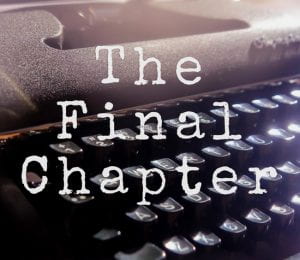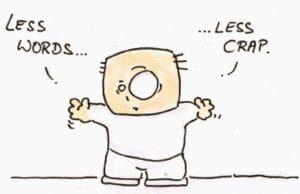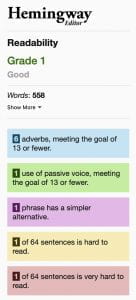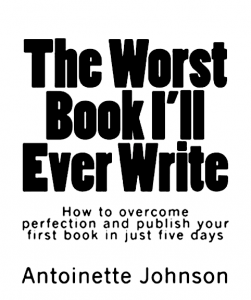 Another dilemma—what to do with unwanted or unnecessary characters. The best idea is to let them go, but do it in such a way that it provides more tension for the main character(s). In my first thriller, the main character – Jack Colins – is chased by a woman who attempts to discover his secret. She sits next to him on a train ride to Milan and hounds her way into his life to the point of being more than annoying. At a crucial moment, Jack discovers her body in an ante-room in a small church and it’s not a pretty scene. But, her demise piles more pressure on Jack and he is forced to flee to safety in an e-type Jaguar, aided by his sister. Unfortunately, she also becomes an ‘unnecessary character’ and …. no more spoilers. But, if you really want to find out what happens to my unwanted characters, why not buy my book? PS: the e-type is yellow; it just had to be yellow.
Another dilemma—what to do with unwanted or unnecessary characters. The best idea is to let them go, but do it in such a way that it provides more tension for the main character(s). In my first thriller, the main character – Jack Colins – is chased by a woman who attempts to discover his secret. She sits next to him on a train ride to Milan and hounds her way into his life to the point of being more than annoying. At a crucial moment, Jack discovers her body in an ante-room in a small church and it’s not a pretty scene. But, her demise piles more pressure on Jack and he is forced to flee to safety in an e-type Jaguar, aided by his sister. Unfortunately, she also becomes an ‘unnecessary character’ and …. no more spoilers. But, if you really want to find out what happens to my unwanted characters, why not buy my book? PS: the e-type is yellow; it just had to be yellow.

editing
Chapter Expansion
 I am a fan of short, crisp chapters. Something that worried me about my first chapter was the length. At 8pp it seemed a bit long, but was held together by the same scene. It must have worried me, because I couldn’t sleep and got up to split the chapter into two. It wasn’t easy, but at least I could now get back to sleep—that is, until I decided to add another chapter to the end of my novel. This is the fun part and why I love writing. By adding another end chapter, I was able to complete a plot circle and connect with an earlier character. It brought some threads together and had the added bonus of giving freedom to my protagonist to enjoy a new, and better, life. This new chapter took my lead character out of the shadows and into the sunshine. I also wanted an ending that finished my novel, yet opened the possibility of another. It goes something like this;
I am a fan of short, crisp chapters. Something that worried me about my first chapter was the length. At 8pp it seemed a bit long, but was held together by the same scene. It must have worried me, because I couldn’t sleep and got up to split the chapter into two. It wasn’t easy, but at least I could now get back to sleep—that is, until I decided to add another chapter to the end of my novel. This is the fun part and why I love writing. By adding another end chapter, I was able to complete a plot circle and connect with an earlier character. It brought some threads together and had the added bonus of giving freedom to my protagonist to enjoy a new, and better, life. This new chapter took my lead character out of the shadows and into the sunshine. I also wanted an ending that finished my novel, yet opened the possibility of another. It goes something like this;
[“This is Maria.”
“Pleased to meet you and thanks for joining us,” I say. She is wearing a wedding ring and I ask, “Is your husband joining us?”
Maria looks away and drops her head. All I can say is, “I’m sorry I asked.”
“It…it’s O.K. He died at sea.”
I change the subject. “Rian, what are we drinking?”
“Ombra, a fine Prosecco from northern Venice.”
“What does ombra mean?” I ask.
“It has a story,” Rian replies. “In Venice, many years ago, a wine merchant set up his cart at the foot of the bell tower in St. Mark’s square. As the day wore on, he moved his cart to stay in the shade and keep his wines cool and fresh for the customers. Ombra means shade or shadow. Here, try some.”
The taste was a burst of refreshing citrus after the hot afternoon. Like the wine seller in Rian’s story, my time at MI6 had been spent chasing shadows.
I raise my glass, “To new friends and a better future.” As I swallow, my eyes meet Maria’s and sunshine fills my soul at last.]
Less Words, Less Crap

I’m revising a paragraph and it doesn’t read well. I take out a complex phrase and, voila, the paragraph flows. Fewer words can energize writing and increase the pace; more words slow it down. When editing, I ask myself:
- What descriptive text can I remove, yet retain the setting?
- Do I need this action or does it detract from the plot?
- Is there a better way to convey this character’s mood?
- Can I break a long chapter into two shorter ones?
- Does the sentence length vary enough?
A Big Thank You

A big thank you for taking time to check out my humble blog. A thousand views is a big encouragement to help me keep going to find the right literary agent and, eventually, a publisher. Before you congratulate me, among these 1,000 views are a few dedicated followers, including me. Perhaps this blog has had only 750 unique views? Still, it gives me an opportunity to share my writing journey. Yes, I could give up the search for an agent and self-publish again. However, I feel compelled to partner with an agent to help produce a book with a far greater reach. As my professional editor said, “I have a good feeling about this book.” I hope she’s right.
Caution – Tedgerous Editing Ahead
 It played on my mind—the need to change a name in my new book. I had chosen Dan as the name of my captain, but realised that a boyhood friend of mine – Ted Cooper – was a much better fit. Ted and I both worked backstage in a high school play; no doubt it was Shakespeare. On the final night we stayed up late and decided to celebrate with a midnight cruise in a small yacht to a volcanic island, just off the mainland. It was a memorable trip across shipping lanes and we felt the freedom of Huckleberry Finn as we ghosted under sail through the night. Unfortunately, our old wooden boat took on water, forcing us to sleep ashore. I will never forget that night, nor my good friend Ted Cooper. We lost contact with each other but I found out that Ted had passed away. He had become a captain in the merchant navy. How appropriate that I should name the captain in my thriller after my good friend.
It played on my mind—the need to change a name in my new book. I had chosen Dan as the name of my captain, but realised that a boyhood friend of mine – Ted Cooper – was a much better fit. Ted and I both worked backstage in a high school play; no doubt it was Shakespeare. On the final night we stayed up late and decided to celebrate with a midnight cruise in a small yacht to a volcanic island, just off the mainland. It was a memorable trip across shipping lanes and we felt the freedom of Huckleberry Finn as we ghosted under sail through the night. Unfortunately, our old wooden boat took on water, forcing us to sleep ashore. I will never forget that night, nor my good friend Ted Cooper. We lost contact with each other but I found out that Ted had passed away. He had become a captain in the merchant navy. How appropriate that I should name the captain in my thriller after my good friend.
Editing is simple in Word – use the find and replace all menu and, bingo, the job’s done? No. Here are some of the replacements I discovered:
With double agents, defecting can be Tedgerous = with double agents, defecting can be dangerous
He was petedtic but damned good at his job = He was pedantic but damned good at his job
tedcer = dancer
Guitedce = Guidance
The moral of this post is to be careful when using “replace all” in Word. If you do, going though 100,000 words to find replacement errors can be danious – oops, I mean, tedious.
Revise, Revise, or be Reviled
 Maggie Shipstead (left) writes, “John Gardner famously wrote that fiction should be a “vivid, continuous dream,” but some readers’ willingness to dream is more robust than others. Some people will shut a book forever at the first sign of an error, their trust in the writer and their suspension of disbelief irrevocably lost. Others will happily read along through almost anything, swallowing the most preposterous plot points, the most egregious anachronisms, and the most glaring inconsistencies…But I think sloppiness is worth trying to avoid, both out of pure principle (why get something wrong when you could get it right?) and because mistakes can be indicative of an author not pressing hard enough on the world she’s building, not making it sturdy enough, settling for a facade.” In her article, Maggie mentions good, or ill-meaning, folks who delighted in pointing out errors in her published work. I had a textbook that was in its 3rd reprint when along came a young student (aka smarty pants) who wrote to my publisher to point out an error, and it was an obvious one—one that escaped the keen eye of editor, writer, proof-reader, etc. How could this happen? In my first novel, the errors kept creeping out of the pages; proof that I was a lousy writer? No matter how hard I tried, the errors were there and my flame-thrower spell checker never seemed to pick them up. When all seemed well, my American spelling lapsed into English spelling; a tense changed within a paragraph, etc. Why all these mistakes? Because, writers, like other humans, are fallible. We get tired. We get over our draft revisions and we long to be rid of the manuscript. My advice to those who find errors? Tell us, but then hide under the bed-covers before we find you and hit you over the head with our revised edition :-).
Maggie Shipstead (left) writes, “John Gardner famously wrote that fiction should be a “vivid, continuous dream,” but some readers’ willingness to dream is more robust than others. Some people will shut a book forever at the first sign of an error, their trust in the writer and their suspension of disbelief irrevocably lost. Others will happily read along through almost anything, swallowing the most preposterous plot points, the most egregious anachronisms, and the most glaring inconsistencies…But I think sloppiness is worth trying to avoid, both out of pure principle (why get something wrong when you could get it right?) and because mistakes can be indicative of an author not pressing hard enough on the world she’s building, not making it sturdy enough, settling for a facade.” In her article, Maggie mentions good, or ill-meaning, folks who delighted in pointing out errors in her published work. I had a textbook that was in its 3rd reprint when along came a young student (aka smarty pants) who wrote to my publisher to point out an error, and it was an obvious one—one that escaped the keen eye of editor, writer, proof-reader, etc. How could this happen? In my first novel, the errors kept creeping out of the pages; proof that I was a lousy writer? No matter how hard I tried, the errors were there and my flame-thrower spell checker never seemed to pick them up. When all seemed well, my American spelling lapsed into English spelling; a tense changed within a paragraph, etc. Why all these mistakes? Because, writers, like other humans, are fallible. We get tired. We get over our draft revisions and we long to be rid of the manuscript. My advice to those who find errors? Tell us, but then hide under the bed-covers before we find you and hit you over the head with our revised edition :-).
Editing 101
This may, or may not, help budding writers: What is the best way to edit your manuscript? Here’s my take, based on the experience of two novels:
Step 1: Finish your Manuscript, then throw it aside for a few weeks. Return to it and read it through, noting obvious errors. Each time you step away from your manuscript you come back to it from a fresh perspective. Note: your first draft is always (yes, always) inadequate.
Step 2: Use an Online Editor. I like using prowritingaid or, more recently, grammarly. Both of these help identify issues such as repeated phrases, over-use of adverbs, sentence lengths, etc. I don’t recommend paying a subscription service, unless for a short period (e.g. a month) in order to check your entire manuscript. A feature I liked as the one where (in prowritingaid) where you can compare your style to another author. You may not be a Hemingway fan, but I like the simplicity of checking chapters in the Hemingway app. Here’s an example from my new novel (with the Hemingway result alongside);
 Nikolai had a glass in hand and a faraway look. The lighting cast deep shadows in the folds of his face. He seemed angry, or drunk, or both.
Nikolai had a glass in hand and a faraway look. The lighting cast deep shadows in the folds of his face. He seemed angry, or drunk, or both.Step 3: Join a Writing Circle. This is, I’m my humble opinion, the MOST important step. Get a writing-circle to review your work. This circle should consist of other writers or readers in your genre who will give constructive advice and not hold back on any criticism. For example, one of my fellow writers gave such good feedback that I rearranged my chapter order, changed the ending, and built a more authentic and powerful plot. And I was able to reciprocate and also offer him advice on his new book.
Step 4: Find a Professional Editor. There are many people who have experience in the publishing trade who are happy to review your work. I used one to check my submission trio – the Query Letter, Synopsis, and first three chapters. Their fixes and recommendations were so good that I asked them to check over other key chapters in my novel. What I especially liked was an experienced editor’s positive encouragement with, “I have a good feeling about this book.” Now, I just need a literary agent to agree.
Final Note: Don’t let any of the above steps change your own writing style. Stay true to who you are as a writer and use the steps to improve your style, rather than force it into someone else’s.
Is Your First Book Your Worst?
 Don’t you love this book title? I remember reading somewhere that an author’s first book is ‘always their worst’. I loathed that thought and was determined to disprove it. Yet, the final draft of my first book was so rough that I had to completely re-edit and improve it.
Don’t you love this book title? I remember reading somewhere that an author’s first book is ‘always their worst’. I loathed that thought and was determined to disprove it. Yet, the final draft of my first book was so rough that I had to completely re-edit and improve it.
After a period of time I discovered that my first book, although well received, could have been much better. I had moved on and so had my writing. As someone posted, “Ten years ago you thought you were doing alright. Now, today, you may look back and cringe at your hairstyle or the clothes you wore or the way you acted and thought. I was terrible! you might say, but at the time you didn’t realize it…First books can be similar…Two books or a few years later you can see how much you’ve grown and cringe at the first attempt. If it’s bad let it be bad and grow from it. Don’t let its potential to be bad keep you from moving forward.”
A great post and one I can connect with. What did I learn from my ”first book experience”?
- I used it as a platform to get better
- I revisited it months later (after being self-published) and did an entire re-write (and re-publish). Note: if I had taken the traditional publishing route I would have avoided this drama 🙂
- After an ‘aha’ moment, I added another chapter to my first novel
- I took my first thriller, with all its shortcomings, and worked harder to make my second thriller a vast improvement – more nuanced and complex, with clear connections from start to finish.
You Need More Layers in Cold Weather
When we lived in the fickle weather of Portland in the North-West of the USA we learned to layer our clothing and adapt to the changing conditions (which is why the Columbia clothing seconds store was so popular). We needed more layers as the weather headed south. The same is true for a thriller; it needs layers to gather complexity—layers that unwrap as the plot thickens. I like this analogy as gives weight to the fact that thrillers can’t be too short. If they are, the layers are thin and the reader chills too quickly. But, a multi-layered story holds their interest. Thrillers with several layers provide complexity. In my first draft of my second thriller, feedback from Beta Readers pointed out that the ending was too simple. I agreed with them and, with a tough edit and re-write, finished the book on a more powerful note. My new ending prompted some other changes, even as far back as Chapter One. So, layer up friends and look forward to a thriller that, hopefully, keeps you warm throughout.
Now that seasons have been mentioned, these play an important descriptive part of my new thriller. Here is an example taken toward the end. It also gives a strong impetus for the protagonist to want to leave dreary London and settle somewhere warmer;
Sir Donald stands, holds a match to his pipe and looks across to Hans Place Garden. I follow his gaze. The trees have shed their coats, leaving a wet carpet of brown and yellow leaves along the street and over parked cars. Another dull and soggy day in London ushers in an early night. I hate winters here and yearn to be back in the Mediterranean. [pg 339]
When description matters
 I’m playing with words again and, this time, lingering over a short section of my final chapter. Here’s the original:
I’m playing with words again and, this time, lingering over a short section of my final chapter. Here’s the original:
“I have a gift for you,” she chuckles.
The Christmas wrapping is enticing.
“I wonder what this could be?” I reply, shaking the parcel in the same way that I did as an excited young boy on Christmas Eve. “It feels solid.”
“A small keepsake,” she replies.
My hesitation is over the boy and his reaction to the present. What is missing? I remember now. It was not just a Christmas present, but my reaction as a young boy to the sight of all the presents under the Christmas tree and wanting to feel each one. So, I added to the text to give a sense of this excitement. It now reads,
“I have a gift for you,” she chuckles.
The Christmas wrapping is enticing.
“I wonder what this could be?” I reply, shaking the parcel in the same way that I did as an excited young boy on Christmas Eve. How I loved the presents wrapped and stacked beneath the family tree.
“It feels solid.”
“A small keepsake,” she replies.
My hope is that the addition of this text gives more sense of a boyish reaction, and has the reader getting excited too, to see what is inside the wrapping. Of course, I am not going to give the game away here and reveal the present, but it suits the plot.
